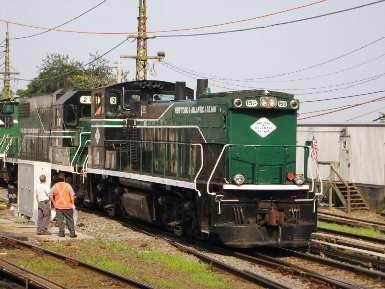Antiquated, high emission train engines have been a great concern for residents in the industrial areas of southwest Queens. But now, an upgrade is on the way.
Freight trains passing through areas of Community Board 5 and 9 have been running past residential homes for years, causing the track’s neighbors to question any potential health risks.
“This is a quality of life issue,” said Mary Parisen, chair of Civics United for Railroad Environmental Solutions (CURES).
CURES has worked feverishly to ensure upgraded locomotive engines for the area, and through work with Assemblymember Andrew Hevesi and a coalition of elected officials, managed to secure $3 million in this year’s legislative budget to upgrade engines.
“This is the first win in what will be an ongoing fight to protect the health of countless families in Queens,” Hevesi said.
“With New York State’s recognition that outdated trains can be severely damaging to communities they pass through, we have taken the first step toward fixing this problem.”
The funds will kick off a pilot project that will upgrade the first of a number of antiquated, high- emission trains.
The trains, owned and leased by the LIRR, are currently equipped with “archaic” 1970s engines, and operate throughout the city and Long Island, carrying waste and cargo near residents’ backyards, schools, parks and beaches.
However, after the upgrade, there is expected to be an annual reduction in nitrogen oxide, a known byproduct of diesel engines, by up to 76 percent, or 120 tons of emission over 10 years, according to Hevesi’s office.
After years of work advocating for modernized engines, Parisen said that she and the other members of CURES are “ecstatic” simply because they no longer need to convince agencies and the government that the upgrade needed to be done.
“They all acknowledged that this needs to happen, now it’s just a matter of how we’re going to do it,” she said.
The allocated $3 million is going to the LIRR and the MTA, Parisen said, and they are going to upgrade however many trains they can with the amount.
“The locomotives now are doing the most damage to the most densely-populated areas,” she said. “We need to make sure the neighborhood gets the best locomotive possible.”
The coalition plans to continue petitioning the state until all necessary fleet upgrades have been completed, said Hevesi’s office.
RECOMMENDED STORIES
- Toxic chemicals worry Ozone Park residents
- Rockaway Beach line restoration gets federal support
- Study to see if power lines should be underground































